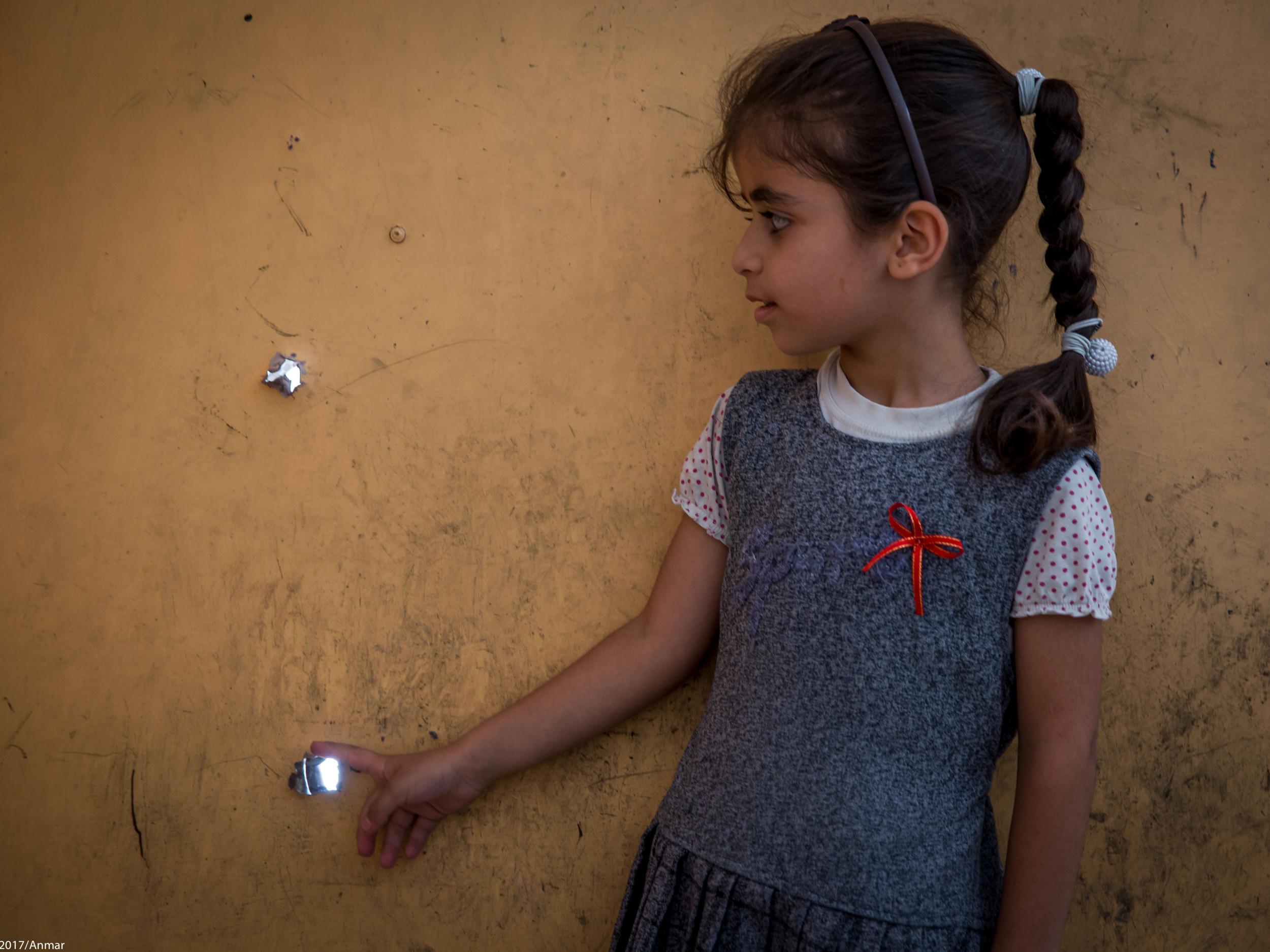Children becoming frontline targets at 'shocking' scale in global conflicts, warns Unicef
'As these attacks continue year after year, we cannot become numb. Such brutality cannot be the new normal'

The scale of attacks on children in conflict zones around the world reached "shocking" levels in 2017, the United Nations Children’s Fund has warned.
Unicef said parties in conflicts were "blatantly disregarding international laws designed to protect the most vulnerable" and children were being killed, maimed, recruited to fight and used as human shields,
Rape, forced marriage, abduction and enslavement have also become “standard tactics” in conflicts including Iraq, Syria and Yemen, to Nigeria, South Sudan and Burma, the organisation warned.
Some children abducted by extremist groups continue to experience abuse upon release when they are detained by security forces, Unicef said.
Millions more suffer from malnutrition, disease and trauma as basic services – including access to food, water, sanitation and health – are denied, damaged or destroyed in the fighting, it added.
Manuel Fontaine, Unicef Director of Emergency Programmes, said the world cannot accept this level of brutality as the “new normal”.
“Children are being targeted and exposed to attacks and brutal violence in their homes, schools and playgrounds,” he said. “As these attacks continue year after year, we cannot become numb."
The warning came as the charity released an end of year statement summarising 2017 as a "brutal" year for children caught in conflict.
The report found almost 700 children in Afghanistan were killed in the first nine months of 2017. At least 135 children were forced to act as suicide bombers this year by Boko Haram in northeast Nigeria and Cameroon, it said.
In South Sudan, more than 19,000 children have been recruited into armed forces and armed groups and over 2,300 children have been killed or injured since the conflict first erupted in December 2013.
In Yemen, nearly 1,000 days of fighting left at least 5,000 children dead or injured, Unicef said.
More than 11 million children need humanitarian assistance and out of 1.8 million children suffering from malnutrition, 385,000 are severely malnourished and at risk of death if not urgently treated.
As a result the organisation called on parties in conflicts "to abide by their obligations under international law to immediately end violations against children and the targeting of civilian infrastructure, including schools and hospitals."
It also called "on states with influence over parties to conflict to use that influence to protect children."
Join our commenting forum
Join thought-provoking conversations, follow other Independent readers and see their replies
Comments